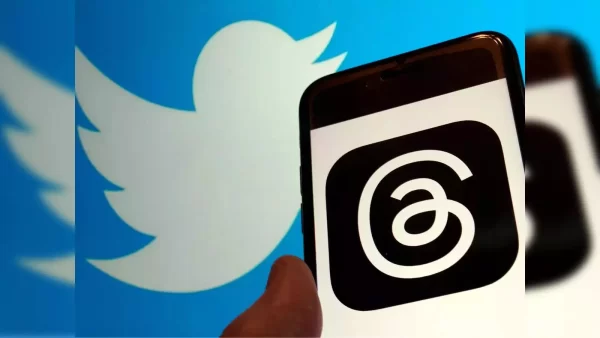
Meta Platforms Inc., led by the prominent billionaire Mark Zuckerberg, has strategically leveraged the recent challenges faced by Twitter to unveil Threads, a text-based conversational application poised to challenge Twitter’s predominant position. Threads, armed with a robust user base, substantial financial backing, and seamless integration with Instagram, emerges as a compelling alternative to Twitter’s established platform.
Unveiling Threads: Features and Operations
Threads operates as a text-based conversation application akin to Twitter, allowing users to create and share real-time textual updates with their followers. This content can be liked, replied to, and shared by followers. Notably, the application facilitates a smooth transition for Meta’s extensive user base of over 2 billion from the photo and video-sharing platform Instagram, as users can import their follower lists and account names from Instagram.
Availability and Constraints of Threads
Meta plans an extensive rollout of Threads in over 100 countries, with the exception of the 27-nation European Union. Regulatory concerns pertaining to data sharing between Threads and Instagram have led to this exclusion. Meta awaits further guidance on compliance with the EU’s Digital Markets Act, which restricts the amalgamation of personal data across different platforms. Threads is currently accessible through the Apple App Store and Google Play Store on iPhone and Android devices, but lacks a desktop version or web browser access at the initial launch.
Integration with Instagram and Account Management
Threads is intricately linked with Instagram, to the extent that deleting a Threads account will result in the simultaneous deletion of the associated Instagram account. Blocking an account on Threads will similarly block it on Instagram. Users who sign up for Threads through Instagram receive a Threads badge on their Instagram account page, signifying their early adoption of the Threads app.
Meta’s Motivation: Challenging Twitter’s Influence
Meta’s objective with Threads is transparent: to entice Twitter users to migrate to its platform. Mark Zuckerberg has articulated the need for a public conversations app with over a billion users, underscoring Twitter’s inability to realize this vision. Meta aspires to provide creators and public figures with a well-managed platform, subtly alluding to Elon Musk’s controversial stewardship of Twitter since his acquisition in October 2022.
Twitter’s Challenges Under Musk’s Ownership
Following Elon Musk’s acquisition of Twitter, the platform encountered technical glitches, content moderation issues, and controversies surrounding Musk’s stance on “free speech absolutism.” Musk implemented temporary constraints on daily tweet views to combat data scrapers and bots. Financially, Twitter faced challenges, with a 50% decline in advertising revenue and significant employee layoffs. European Union regulatory bodies demanded heightened efforts from Twitter to address sensitive content and disinformation.
User Migration and Emergence of Alternatives
Prominent figures such as Oprah Winfrey and Elton John distanced themselves from Twitter shortly after Musk’s takeover. Alternative platforms like Mastodon and Bluesky Social gained increased user adoption. Mastodon, an open-source social network, saw its user base grow from 9 million to over 13 million accounts post-Musk’s arrival. However, none of these alternatives match the scale and influence of Meta’s Instagram, boasting over 2 billion monthly active users.
Decentralization Plans for Threads
Meta has hinted at future iterations of Threads embracing decentralization by collaborating with the “fediverse,” a technology concept facilitating interoperability between social media platforms. Threads’ integration with ActivityPub, a major decentralized social media protocol, aligns with Meta’s vision for a more open and interconnected online ecosystem.
The Verdict: Can Threads Disrupt Twitter’s Dominance?
The prospect of Threads emerging as a formidable competitor to Twitter remains uncertain. Analyst opinions are varied, with some suggesting that Meta’s Threads could capture substantial consumer engagement and advertisement budgets, especially if Meta actively addresses misinformation. On the contrary, skepticism exists regarding Meta’s branding, perceived as more informal compared to Twitter, potentially limiting its potential for complete disruption.
